Related Research Articles

Richard Aldington was an English writer and poet. He was an early associate of the Imagist movement. His 50-year writing career covered poetry, novels, criticism and biography. He edited The Egoist, a literary journal, and wrote for The Times Literary Supplement, Vogue, The Criterion, and Poetry. His biography, Wellington (1946), won him the James Tait Black Memorial Prize.
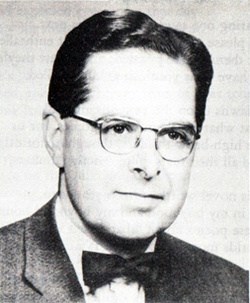
Donald Alfred Davie, FBA was an English Movement poet, and literary critic. His poems in general are philosophical and abstract, but often evoke various landscapes.
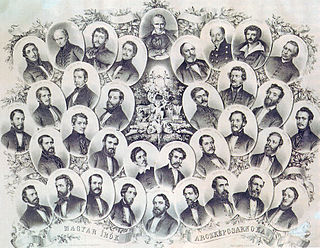
Hungarian literature is the body of written works primarily produced in Hungarian, and may also include works written in other languages, either produced by Hungarians or having topics which are closely related to Hungarian culture. While it was less known in the English-speaking world for centuries, Hungary's literature gained renown in the 19th and 20th centuries, thanks to a new wave of internationally accessible writers like Mór Jókai, Antal Szerb, Sándor Márai, Imre Kertész and Magda Szabó.
Thomson William "Thom" Gunn was an English poet who was praised for his early verses in England, where he was associated with The Movement, and his later poetry in America, even after moving towards a looser, free-verse style. Gunn wrote about his experience moving to San Francisco from England. He received numerous literary honors, and his best poems are reputed to possess a restrained elegance of philosophy.

Attila József was one of the most famous Hungarian poets of the 20th century. Generally not recognized during his lifetime, József was hailed during the communist era of the 1950s as Hungary's great "proletarian poet" and he has become the best known of the modern Hungarian poets internationally.
William Cookson was a British poet, writer on poetry and literary editor, best known for his poetry magazine Agenda, regarded as one of the most influential of its age.

György Faludy, sometimes anglicized as George Faludy, was a Hungarian poet, writer and translator.

George Szirtes is a British poet and translator from the Hungarian language into English. Originally from Hungary, he has lived in the United Kingdom for most of his life after coming to the country as a refugee at the age of eight. Szirtes was a judge for the 2017 Griffin Poetry Prize.

János Arany was a Hungarian poet, writer, translator and journalist. He is often said to be the "Shakespeare of ballads" – he wrote more than 102 ballads that have been translated into over 50 languages, as well as the Toldi trilogy.

Miklós Radnóti was a Hungarian poet, an outstanding representative of modern Hungarian lyric poetry as well as a certified secondary school teacher of Hungarian and French. He is characterised by his striving for pure genre and his revival of traditional, tried and tested genres.

Charles Hubert Sisson, CH, usually cited as C. H. Sisson, was a British writer, best known as a poet and translator.
Nationality words link to articles with information on the nation's poetry or literature.
Nationality words link to articles with information on the nation's poetry or literature.
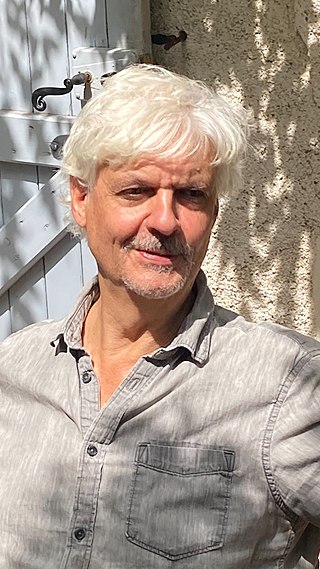
Stephen Romer, FRSL is an English poet, academic and literary critic.
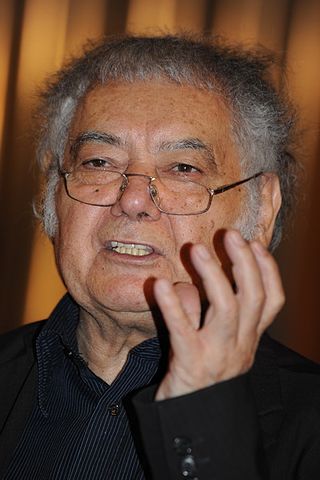
Sándor Csoóri was a Hungarian poet, essayist, writer, and politician.

George Gomori is a Hungarian-born poet, writer and academic. He has lived in England since 1956, after fleeing Budapest after the Hungarian Revolution, in which he played a pivotal role. He writes poems in Hungarian, many of which have been translated into English and Polish, and other writings across all three languages. He is a regular contributor to British newspaper The Guardian and to The Times Literary Supplement.
Miklós Lorsi was a Jewish Hungarian violinist who was killed during the Holocaust. The manner of his death, and allusion to his art as a violinist formed the line "already taut, a string about to snap" in the last poem of Miklós Radnóti.
John Frederick Peck is an American poet, Jungian analyst, editor and translator.
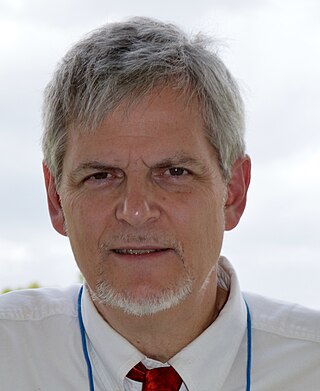
John Gery is an American poet, critic, collaborative translator, and editor. He has published seven books of poetry, a critical work on the treatment of nuclear annihilation in American poetry, two co-edited volumes of literary criticism and two co-edited anthologies of contemporary poetry, as well as, a co-authored biography and guidebook on Ezra Pound's Venice.
Péter Zollman was a Hungarian-born scientist, research physicist, engineer, inventor and translator of literary works.
References
- ↑ Stringer, Jenny. The Oxford Companion to Twentieth-Century Literature in English, p. 725.
- ↑ "College Fellows"Sidney Sussex College, Cambridge. Retrieved 7 February 2011.
- ↑ "Staff by Subject"Anglia Ruskin University. Retrieved 7 February 2011.
- ↑ "Bye Fellows"Fitzwilliam College, Cambridge. Retrieved 7 February 2011.
- ↑ Interview for Poetic Mind.
- ↑ John Ruskin, Unto this Last and Other Writings, edited with introduction, commentary and notes by Clive Wilmer (Harmondsworth: Penguin, 1985).
- ↑ Davie, Donald, "Ezra Pound and the perfect lady", London Review of Books , Vol. 7, No. 16, 19 September 1985.
- ↑ Numbers, volumes I to IV, Cambridge, 1986 to 1989, ISSN 0950-2858.